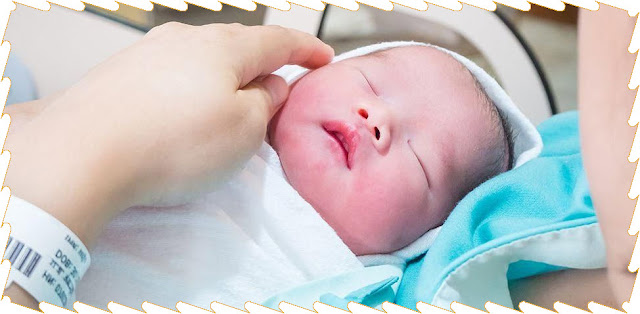PKU or also known as Phenylketonuria is a congenital disease caused by genetic disorders. Phenylketonuria causes sufferers unable to break down the amino acid phenylalanine, so these substances accumulate in the body. The symptoms of phenylketonuria will usually appear gradually.
Then what is meant by phenylalanine?
Based on its severity, PKU is divided into two types, namely severe (classic) and mild phenylketonuria. In severe phenylketonuria, the enzymes needed to convert phenylalanine are lost or drastically reduced. This condition causes phenylalanine levels in the body to be very high and there is severe brain damage.
In mild PKU, enzymes can still function, although not as well as normal. This condition causes the accumulation of phenylalanine is not too high.
PKU Symptoms
PKU symptoms appear slowly. Generally, these symptoms only appear when the child is 3–6 months old. Some of the symptoms that will appear are:
- Bad breath, urine, skin, or hair odors
- Skin rash or eczema
- Seizures
- Tremor or shaking
- The color of the skin, eyes, and hair lightens
If not treated, PKU can cause permanent brain damage. This condition can be characterized by several symptoms, such as:
- Stunted growth and development of children
- Intellectual impairment or mental retardation
- The size of the head is smaller than the size of a normal baby's head (microcephaly)
- Recurrent seizures
When go to doctor
Take your child to the doctor when experiencing the complaints and symptoms mentioned above. Early examination and treatment is needed to prevent complications.
If the child is born to parents with a history of PKU, take the child for regular check-ups to the doctor. The sooner it is detected and treated, the lower the risk of phenylalanine buildup and serious brain damage.
If you and your child have been diagnosed with PKU, carry out routine controls and follow the recommendations and special dietary arrangements given by the doctor to prevent the buildup of phenylalanine in the body.
Causes of PKU
PKU is a disease caused by a genetic mutation, which will cause the loss and reduction of phenylalanine-breaking down enzymes. This genetic mutation can also cause the phenylalanine-breaking enzyme to not work properly. These things will cause a buildup of phenylalanine.
Until now, the cause of this genetic mutation is not certain. Phenylketonuria is inherited through autosomal chromosomes recessively. That is, a person will only suffer from this disease if they get the phenylketonuria gene from both parents.
If only one parent has the phenylketonuria gene, the offspring will not develop this disease. However, the child of these parents can be carriers or carriers of the phenylketonuria gene.
Diagnosis of PKU
To diagnose phenylketonuria, the doctor will do a question and answer about the complaints and symptoms experienced by the patient as well as the medical history in the family. Next, the doctor will perform a thorough physical examination. To ensure phenylketonuria, the doctor will ask the patient to perform supporting tests, such as blood tests and DNA tests.
If the baby is at risk of developing PKU, screening can be started when the baby is one week old. This examination is done by taking a blood sample from the baby's heel or elbow to be examined in the laboratory.
If proven to have PKU, the baby should undergo routine checks to measure the phenylalanine levels in his body. The frequency with which blood tests are performed to monitor phenylalanine levels are:
- Once a week, in babies aged 1-6 months
- Once every two weeks, in babies aged 6 months to 4 years
- Once a month, for children over 4 years of age to adults
PKU Treatment
Phenylketouria cannot be cured. PKU treatment aims to control phenylalanine levels in the body so as not to cause symptoms, and to prevent complications.
Treatment for phenylketonuria begins with a diet that is low in phenylalanine. In infants who consume formula milk, parents should consult with their pediatrician regarding the appropriate type of formula milk.
After children can eat foods other than breast milk, parents are asked to stay away from foods that contain lots of protein, such as eggs, milk and processed products, fish, and all types of meat. In order to maintain their amino acid intake, children can be given amino acid supplements according to the doctor's instructions.
This low phenylalanine diet still has to be lived until the children become adolescents and even adults. Apart from avoiding foods high in phenylalanine, sufferers should also avoid foods, drinks, and medicines in the form of syrups that contain artificial sweeteners.
To monitor phenylalanine levels in the body, patients will be asked to undergo regular blood tests. This monitoring can also prevent sufferers from complications of phenylketonuria.
PKU complications
Phenylketonuria that does not get proper treatment will cause several complications, namely:
- Permanent brain damage
- Stunted child development
- Behavioral and emotional disorders
- Seizures and tremors
If phenylketonuria that occurs in pregnant women is not treated, complications can arise in the form of miscarriage or babies born with congenital abnormalities, such as congenital heart disease and microcephaly (smaller head size).

